From a self-isolation thriller to photographs exploring the human touch, coronavirus has made artists of all kinds re-evaluate their work. In the first of a three-part series we speak to Natalie Cassidy, Mary McCartney and more
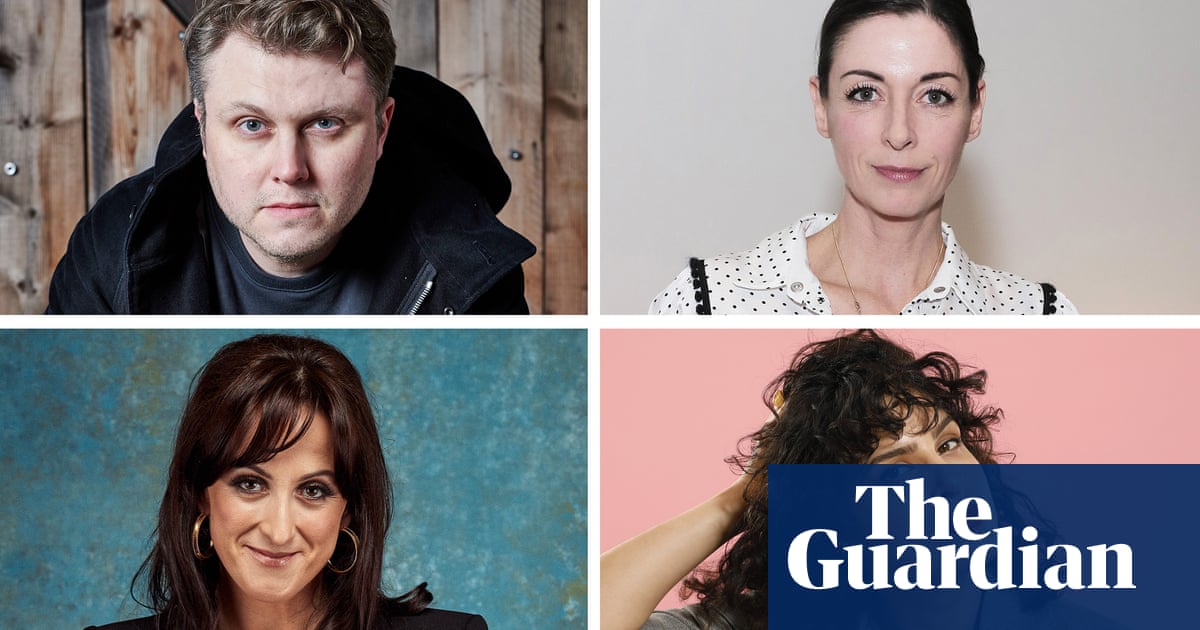
James Smythe, author
Im currently writing book four of a quartet, and it has the shadow of Covid-19 hanging over every part of it. It deals with a very different sort of pandemic (the loss of linear time) and is ostensibly about grief, about how we move past that which weve lost. Suddenly, the allegorical nature of it isnt nearly as allegorical: our relationship with loss and grief has now been altered.
Im also working on a novel set in the fashion world of both a decade ago and the very near now, but thats suddenly much harder to work on. It feels, in some ways, almost pointless to write, because we cant say how scarred we will be as a society when we reach the other side of this thing. Writing the present novels usually being published 18 months or so after theyre written feels impossible. How long until we can travel to New York? Do print magazines exist? Will people shake hands still? Details that feel like nothing until you fixate on them.
My anxieties led to something else: a desire to do more than I am. Im working hard to feed my family, and staying indoors like weve been told to. But Im lucky, and many people are not. I had an unpublished novel, K&R a thriller, thats entirely coincidentally about a family trapped in a house and decided to sell it digitally, with all proceeds going to charities helping those who need it. The novel came from a dark time in my life; maybe this way itll be able to do some good.
-
K&R is available to buy online as an ebook. All proceeds will go to charities helping people during the Covid-19 pandemic, including Street Kitchen and Doctors of the World.
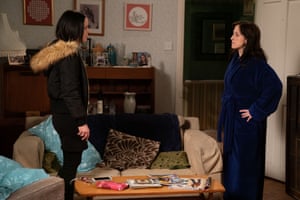
Natalie Cassidy, actor
We stopped working a month ago, and the pace of change in my life is incredible. Some actors go job to job, but I started at EastEnders aged 10 playing Sonia, and this year Ill turn 37. Just like for our audience, its odd to see the show close down when youre part of it: its a home from home.
Its hard artistically, Im worried about the muscles in my brain I use for acting. When I go on holiday, I always feel a bit rusty on returning. Maybe Ill learn some monologues, look through the plays Ive got on the bookshelf.
All these cancellations have left huge voids in peoples lives, although thankfully because EastEnders records ahead our episodes are still airing. But if this goes on for a long time well have to get creative. Maybe we can put something out there ourselves video conversations between characters maybe?
And a decision will need to be made as to whether EastEnders is going to deal with this situation on screen. Sonias a nurse shed have been on the frontline of this pandemic.
Mary McCartney, photographer
Id been working on an exhibition called Found before this happened going through my archive looking for natural moments. Suddenly, the pictures that stood out were these moments of affection between two people simple, casual moments had now become so charged. Ive been posting them on my Instagram with the hashtag #MomentsOfAffection because if we cant have those moments, maybe we can get some solace out of being able to look at them.
So far Ive posted images such as Mark Rylance kissing another actor on the cheek backstage at Twelfth Night; circus performers holding hands on a tightrope; a couple on a riverboat in Hong Kong where he has his arm around her and she has her head on his shoulder.
Theres a picture of my father Paul with his grandson Arthur lying on his tummy. It was taken in 1999 and captures that feeling of true affection. Right now, our situation is the same as everyone elses all the generations have landed where they are and everything has been thrown into question. Thank goodness for FaceTime and Zoom.
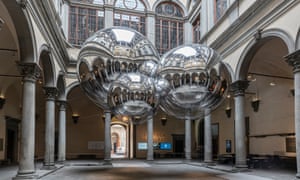
Toms Saraceno, artist
In my studio, the physical work has stopped. Ive been reading Harriet A Washington, who makes studies revealing that we dont all breathethe same air. In north America, half the population breathes poor quality air and has asthma and high degrees of mortality. And coronavirus is making this inequality even more obvious theres a direct relationship between Covid-19 and the unequal accessibility to clean air.
On 25 January, we were in Argentina with a lot of indigenous communities who live on the margins of a salt lake, where theres huge extraction of lithium. We went up in a black, solar-powered hot air balloon and broke six world records. On it was written: Yes to life, no to lithium, yes to water. One tonne of lithium needs 200m litres of water to be extracted, and the indigenous people who live around that area are suffering from the process.
When youre flying in a hot air balloon which is just powered by the sun, you need to be really attuned to the weather. Were all on board spaceship Earth, and theres an unequal distribution of the resources. Many of the passengers are disappearing, human and not.
There was a beautiful Instagram post from Extinction Rebellion who said that we have to be really careful talking about the diminishing of pollution in relationship with the coronavirus. We have to be attentive and sensitive to the loss of life. Instead of being on Earth together, the virus forces more distance between us. Hopefully, art can engage us in journeys of solidarity and connect us again.
When my exhibition in Florence was closed, I didnt even have the time to think about it Im more thinking about the lives of my family and friends in Italy, you know? I read an article the other day about an indigenous population who thought about coronavirus as a portal. If youre not very careful you can fall in this portal, but if youre careful it can take you into a new dimension.
So I dont read the newspaper more than two times a day, and I meditate. Theres a kind of media thats addictive, it affects your ability to think by connecting people in a way thats not good. Now when we start to digitise the art and move it into a new medium, we have to learn how to navigate the web things that we thought we knew already.
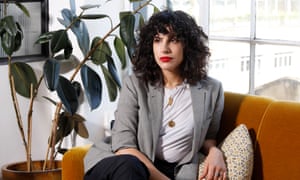
Desiree Akhavan, film-maker
Sirens scream outside my window in New York, all day and all night. Ill forget for a minute. Itll start to feel like Im playing hooky from the most tedious elements of my life: crowded subways, pointless meetings, obligatory dinners I never wanted to schedule in the first place. Then, sirens flood the apartment, and its like a glass of iced water to the face.
When I ask my dad if hes well stocked, he says theres no need! He goes to the store every other day. I stress the importance of going to the store no more than once every two weeks, and Im met with: But I live right next to ShopRite! My lectures feel limp and inarticulate deja vu of me at 13 outside Claires Accessories, failing to convince him my quality of life would improve with a second ear piercing.
He says: You think this is scary ha! The Islamic Revolution was scary.
Ive been writing a film about that revolution, and its becoming more relevant by the hour. The sirens, the fear, the empty shelves, the new reality thats no longer relevant an hour later. Im finally a character in the stories I was raised on. It feels a bit like coming home. Only its a terrifying home where your heart lives in your oesophagus, and the threat of loss manifests itself as constant paranoid fear that rings in your ears like a score (the terrifying Mica Levi kind, not Philip Glass).
Theres been a lot of noise in my life this past year around how to be more popular, more palatable. Somewhere, amidst the sirens, the volume on all the bullshit got turned off. Im feeling a level of joy and gratitude I hadnt allowed myself. It reminds me of how sex becomes a bit spectacular when you feel youre on the brink of losing your partner. Perhaps that will be what happens to art? Maybe this will become an opportunity to stop worrying about all the noise and find a way to connect to the core of who we are, why we do this, and what were saying.
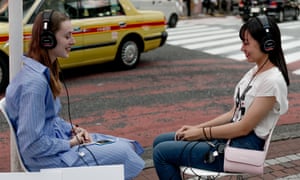
Enni-Kukka Tuomala, artist
Im an empathy artist and designer as far as I know Im the first in the world. So much of my work is about people coming together, and before Covid-19 that meant in person. I would run empathy workshops or have people collaborate on artworks. Ive even had politicians playing with balloons in the Finnish parliament.
The pandemic has proven a big challenge. But its also made me realise that focusing on empathy is more relevant than ever. So Ive been working overtime to redesign my projects so that they can take place remotely. Its given a newfound urgency to my work.
Im planning on using digital platforms, like Zoom and Google Hangouts. But Im also also looking at things like literally phoning people up. Ive got a tool called the Menu For Conversation, which is a guide to having a conversation that includes bigger questions that might be hard to ask under normal interactions. Im hopeful people can use this to speak over the phone and connect.
We know that loneliness is a huge issue in this country; being forced into isolation gives us all a chance to experience what its like for a lot of people in their daily lives. I hope we can all develop a sense of empathy that will be much more far-reaching than the current crisis.
-
Enni-Kukka Tuomala is Open House artist in residence at Kettles Yard, Cambridge
This article contains affiliate links, which means we may earn a small commission if a reader clicks through and makes a purchase. All our journalism is independent and is in no way influenced by any advertiser or commercial initiative. By clicking on an affiliate link, you accept that third-party cookies will be set. More information.


Recent Comments